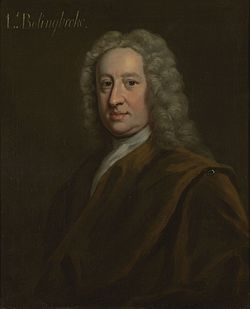This article includes a list of references, related reading, or external links, but its sources remain unclear because it lacks inline citations .(May 2018) |
| |||||||||||||||||||||||||||||
All 558 seats in the House of Commons 280 seats needed for a majority | |||||||||||||||||||||||||||||
|---|---|---|---|---|---|---|---|---|---|---|---|---|---|---|---|---|---|---|---|---|---|---|---|---|---|---|---|---|---|
| |||||||||||||||||||||||||||||
 Composition of the House of Commons after the election | |||||||||||||||||||||||||||||
| |||||||||||||||||||||||||||||
The 1734 British general election returned members to serve in the House of Commons of the 8th Parliament of Great Britain to be summoned, after the merger of the Parliament of England and the Parliament of Scotland in 1707. Robert Walpole's increasingly unpopular Whig government lost ground to the Tories and the opposition Whigs, but still had a secure majority in the House of Commons. The Patriot Whigs under William Pulteney were joined in opposition by a group of Whig members led by Lord Cobham. They were known as the Cobhamites, or 'Cobham's Cubs'.



